
Whether you're an expert or a beginner, you'll likely have gathered up information from various places. And although most of it is likely true, information and tactics will change so we'd like to give you an updated view on what's really working for niche site builders today.
The following counterintuitive points about backlinks are really just the tip of the iceberg.
We understand why people ask them, however, many aspects of SEO can be misconstrued and we're here to straighten out the right from wrong.
When formulating that all-important backlink strategy, start with the end in mind. And know your basics.
The first thing I should state is that backlinks can come from several types of domains and with each type of domain - is a certain authority that can be passed on.
Something known as TLD's or Top Level Domains are going to help you classify which web properties give the highest backlink weight normally.

Without going in too deep, you'll want to get backlinks from these types of "top level domains": .com, .org, .edu, and .gov
.Com is a global TLD, but having a ".ca" or ".co.uk" would be similar in effectiveness. Since they are geographical TLD's.
Now that we've straightened out the types of URL's we'd want to get links from - let's start diving into the misconceptions people often have about backlinks.
1) My Backlink Profile Should Look Natural
You're going to hear a lot of people say this. It's not because they want to steer you in the wrong direction, but they want you to avoid paying for links. I've seen TONS of backlink profiles with unnatural looking links that are ranking extremely well.
Your aim should be to create a backlink profile that focuses on relevancy -not necessarily naturalness.
An example of an unfocused backlink strategy could be seen from most personal blogs. These blogs are more like public journals than monetized niche sites - therefore they aren't seen as subject matter experts and wouldn't be getting links from specific sites in their industry.
A personal blog can gain links from all over the place. If the person is interested in running, they might backlinks from running sites. If the person also has a personal finance section of their site, they might have a backlink from a finance site.
Niche sites with more relevant links will become authorities in themselves. One misconception that I often hear about is the difference between niche sites and authority sites - when in reality:
In any case, Google is smart enough to put you in the right category as long as you focus on building relevant content and better yet - get industry specific links pointing to your site.
2) You Should Only Link To Your "Money Pages"
Your money pages are known as "review" articles of "best" articles. An example being "P-90X Review" or "Best treadmills for seniors".
In general, it's fairly difficult to have a fellow blogger link to your review article unless they know absolutely nothing affiliate marketing. Most people are going to want to monetize that traffic themselves.
However, people will link and share 'informational' content. The more obscure the content, the better in my eyes. There's probably a million people writing about how to lose weight, but there's probably fewer people writing about weight loss side effects and how to overcome them.
You can always use these informational articles to link internally to your money pages.
Internal linking not only passes "link juice", but it:
It's also been shown that just one internal link with the exact target keyword of your article can add a noticeable difference. But more on that in point 5.
3) No-Follow Links Aren't Useful
In this day and age, if you get a link from someone and it's not a 'follow' link - that's weird.
Follow links are seen as endorsements.
Times where you'd expect a no follow link would be sponsored posts and comments. Basically, any link can be a no-follow link but sponsored posts are especially important to be no-follow, as per Google's recommendations.
As you create your backlink strategy, you will want to target getting backlinks from sites that don't really differentiate the two and are willing to give do-follow links generously.

However, if one of your links happens to be no-follow and it's not a sponsored post or a comment, then just ask the webmaster to turn it into a do follow by removing the "rel="nofollow"" from the HTML. Sometimes it can just be an honest mistake or the webmaster doesn't even know what follow links are.
4) Blog Comment's Make You Look Bad
A couple years back, people were using spam bots to create comment links all over the web - and it worked! Nowadays, Google's smart enough to know when that stuff is spam and what isn't.
If you are commenting on a blog for just the link, don't expect much. I think it's apparent now that most people that leave comments aren't exactly normal - they're either super fans or trolls.
Next time you decide to leave a comment, make sure you bring something awesome to the table. Introduce a new concept, highlight a counterintuitive finding, and drop a link to your site if it's suitable for the conversation.
Most comments are moderated so any comment you leave will have to be approved. And if you a crappy comment, it'll turn into less traffic - it's just that simple. Provide less value, you'll get less click throughs.
5) Exact Match Anchor Text Will Hurt You
Exact match anchor text will only hurt you if it's used too much.
In fact, it's preferred to use exact match over anything else since it's considerably more powerful.
If you think you are over optimizing your anchor text, strive to use the LSI related keywords for your anchor text. Check out LSIGraph.com for examples of LSI words.
Of course, you always have control over this with your internal linking but you won't have it with external links. Unless it's on another web property that you control.
Although over-optimization is something you should be aware of, it still doesn't reduce the power of exact match anchor text to push up your rankings. Check out this experiment from Rand Fishkin of Moz on this exact topic.
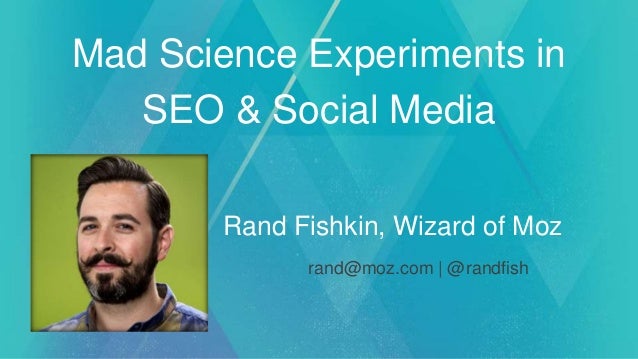
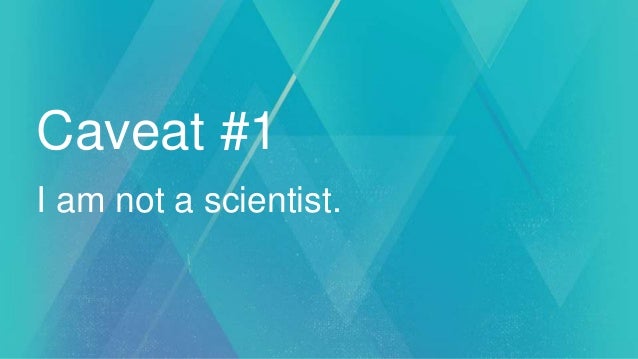
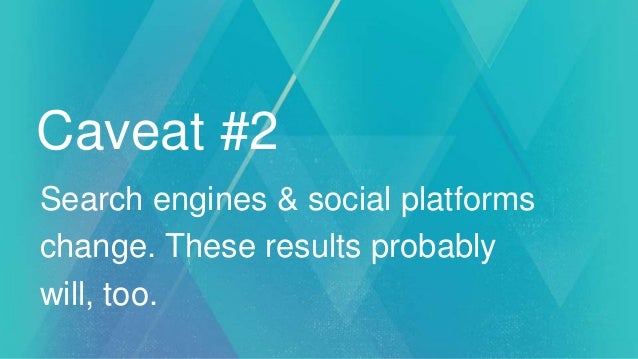
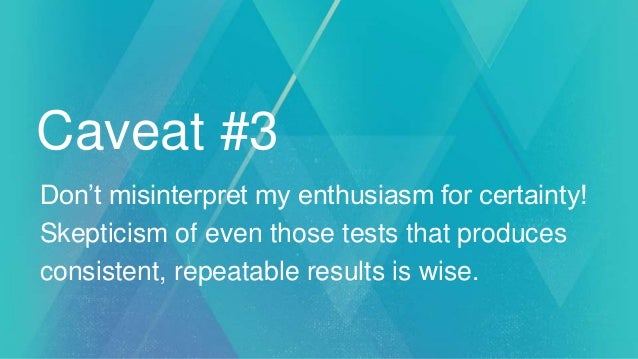

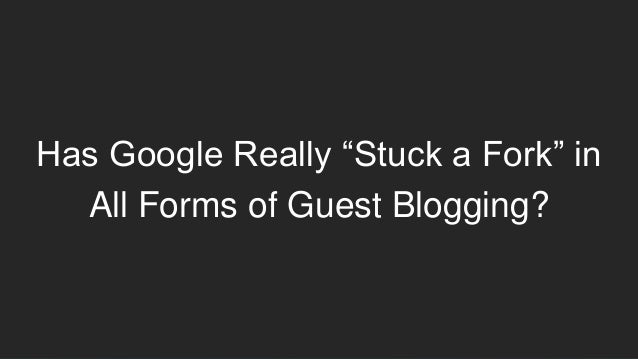
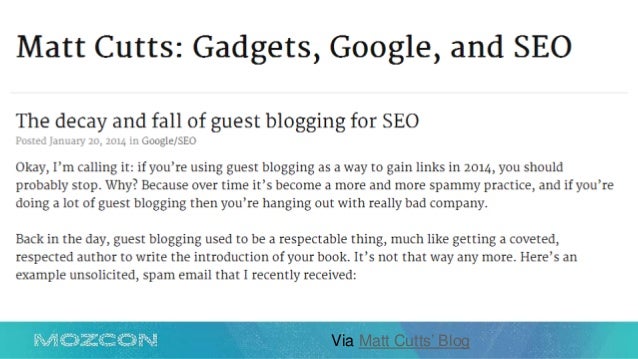

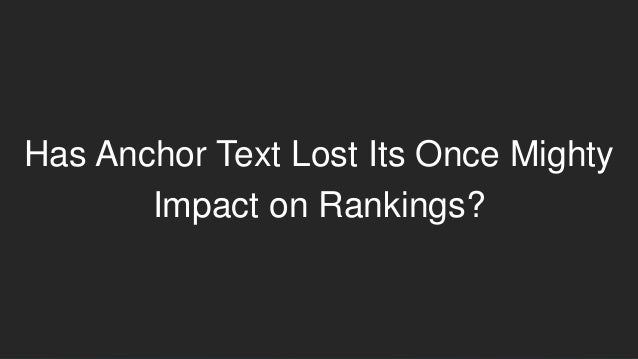
6) Quantity of Links Vs. Quality of Links
Every link you receive from a site is valuable.
But there are diminishing returns. If one site gives you links every week, that links becomes less and less helpful in your rankings.
For example, if you get one link from a site. That link is worth 10 points. If you get another link from that site, it's worth 8 points.
This means that you'll want to diversify the amount of referring domains to your site, rather than getting hundreds of links from one site.
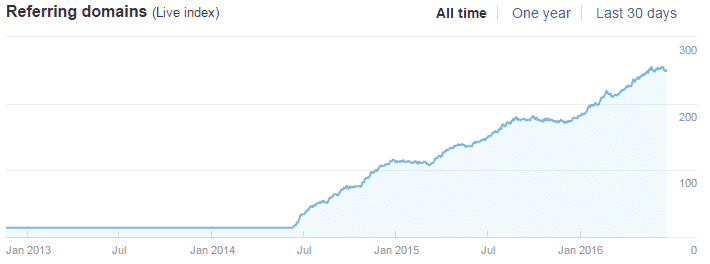
7) Private Blog Networks Don't Work Anymore
This is absolutely not true.
In fact, from the niche site examples we examined, 2 of the 5 were on PBN's. You can always tell because PBN's just look weird when you actually look at them with your eyes and examine the content.
Although some PBN's are niche specific, many aren't.
In any case, if you head over to the marketplace at Empire Flippers - many of the sites include PBN links and people are still buying them up regardless.
And that's because they still work.
8) Web 2.0 Links Looks Spammy
One notable backlink campaign from our niche site examples earlier was from treadmillreviews.net.
At first, I thought it looked fishy that this site had so many links from Blogger, Blogspot and WordPress sites. But after careful examination, it looks like they ran a top list campaign of the best running blogs and awarded them with a badge to display.
That badge had a link and I'm going to guess that it just so happens that bloggers using those types of web 2.0 properties to host their blog don't really know much about link building tactics so they were ready and happy to comply.
A win-win from what I can see. The sites come from high domain authority sites and also the content on each site is extremely niche relevant.
Google didn't penalize them for running this campaign and in fact, this site was one of the biggest sites we examined.
9) Social Media Links Are Ineffective
One of the best things you can do as a new site owner is to setup your social media accounts right away. This gives you a backlink of social signals to work with but as we mentioned earlier - you might be able to bypass the sandbox quicker as well.
Although Google has mentioned that they don't suggest placing social signals in high regard right now, in the future it's possible for them to give higher weight.
Here's a video of Matt Cutts (formerly Google's head of spam) suggesting that very fact.
10) White Hat SEO Has No Risks
If you are a frequent reader of HPD, you'll know that we likely fall into the grey hat area, if any. Although we know a lot of you might be geared towards white hat tactics, it definitely doesn't mean it has no risks at all.
The possibility of over optimizing your site is still possible. This is possible with keyword stuffing, exact match anchor text, paying someone to guest post for you, and much more. In fact, guest posting is actually a no-no in Google’s eyes. Asking for shares can also be interpreted as a negative since it's quid pro quo action.
So as you can see, there really isn't much you can do. White hat tactics are just doing your best to stay on Google's side, which is obviously better - but it doesn't mean it's riskless. Often enough, Google will be very vague in their reasons for penalizing you - which happened with Jon Dykstra’s site penalty recently. So in a way, you’re always grey hat because you don’t really know how to be white hat fully.
In most cases, a white hat strategy requires longer for you to build a property that is sellable in the high figures, as compared to a more inclusive grey hat strategy.
But overall you'd be building a longer term investment and there's nothing wrong with that either.
Depending on the path you choose, PBN's are still a viable option since they warrant the highest return on investment and still work, regardless of what you hear. A lot of sites can ramp up their earnings quickly with PBN links, but of course, if you get caught by Google - then your sites done.
As an internet marketer, you should try and aim to have multiple properties to experiment with. The more experiments you can run, the more you can learn and trust the results you stumble upon.
Original article and pictures take www.humanproofdesigns.com site
Комментариев нет:
Отправить комментарий